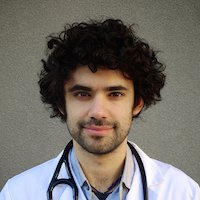This week’s guest on the How I Work Smarter series is a master of efficiency and quality in the Emergency Department. Dr. Jesse Pines (@DrJessePines) is the principal investigator of UrgentMatters.org, a group dedicated to improving emergency care and hospital patient flow. He has the ear of the Center for Medicare and Medicaid Services Innovation Center and the National Quality Forum where, via policy, he’s helping to shape the future landscape of emergency care in the USA. While he has academically published extensively on health policy and workflow, he also takes the time to educate the public at large on the pressing matters in public health and emergency medicine via contributions to Time.com, Slate.com, The Wall Street Journal, and more. Dr. Pines shares his words of wisdom on how he works smarter.
-
Name: Jesse M. Pines, MD, MBA, MSCE

- Location: I work in Washington, DC, but I live in Northern Virginia
- Current job: Director, Office for Clinical Practice Innovation; Professor of Emergency Medicine and Health Policy at the George Washington University
- One word that best describes how you work: Efficiently
- Current mobile device: iPhone 5
- Current computer: Apple MacBook Pro Laptop; Dell Desktop Computer
What’s your office workspace setup like?
My office is on the campus of the George Washington University and overlooks Pennsylvania Avenue on the 3rd floor, about 6 blocks from the White House. Very nice space, but there is a lot of street noise, like when Obama’s 10-car motorcade rolls by blaring sirens and disrupts conference calls.
What’s your best time-saving tip in the office or home?
The best way to be productive and save time is to work in (and ultimately lead) teams of cross-disciplinary, self-motivated people. Effective teams multiply productivity: you can get more done in less time as tasks are spread across the group.
What’s your best time-saving tip regarding email management?
I get too much email and managing it is a challenge. My approach is to try to respond to email right away when I can. If there is a specific task associated with an email – like responding to edits from a manuscript in progress that if I can’t do it immediately, I try to set aside protected time to get it done. Recently though, I’ve become so busy that I sometimes miss email, so if you’re reading this I didn’t email you back, try again please.
What’s your best time-saving tip in the ED?
I try to approach ED management the same way as I approach teams (and email). I take an ABCD approach. The most important ED priorities for patient care are Airway-Breathing and Circulation, of course. But right after C is D, for Disposition. The more you can disposition patients and keep your ED patients moving forward, or moving out, the more room you have for new patients.
Also, the more patients sit around, the more little things come up that require your attention and prevent you from moving to next one. Besides the ABCs, the only thing that ever trumps Disposition is when patients are in severe pain, or are on a backboard. Focusing on Disposition is key to patient flow. I use the same approach when it comes to project management. I try not to let projects sit around festering too long, unless there’s a crisis, focus on disposition.
ED charting: Macros or no macros?
I think macros can be used effectively and have used them in the past, but I don’t personally use them in my current practice.
What’s the best advice you’ve ever received about work, life, or being efficient?
There are two good bits of advice that have changed the way I operate as an academic physician:
- The first is advice I received early which is that an academic physician needs to focus on particular niche, be passionate about it, and then repeat. The Achilles heel of the emergency medicine physician is that we tend to like too many things, and as a result, it is easy to become unfocused academically. Sometimes I see this when I look at academic portfolios of emergency physicians with a wide variety of unrelated studies. The successful academic needs to commit to one or two foci, and become an expert. My early work focused on studying ED crowding where I focused – sometimes obsessively – on the topic. This amplified my productivity because I could write multiple, similar papers where I already knew the methods and literature. The marginal investment was minimized, and I was able to really improve my productivity early on, and become known as an expert.
- The second bit of advice came when I was a junior faculty member at Penn. There, one of my mentors told me that the way to make a real impact as an academic physician was to work closely with people with expertise outside of medicine and bring non-medicine approaches to medicine to find novel ways to study important issues. My mentor had been an academic physician since the late 1970s and in his decades of experience, he saw that people who collaborated outside their discipline were the ones who really advanced their field and were seen as visionary leaders. I took his advice. Today, I collaborate with a variety of people from outside medicine, including sociologists, economists, lawyers, statisticians, and engineers. The quality of this multi-disciplinary work is much greater than I, or they, could achieve alone.
Who would you love for us to track down to answer these same questions?
- Brendan Carr
- Jay Schuur
- Randy Pilgrim
Author information
The post I am Dr. Jesse Pines, Professor of Emergency Medicine and Health Policy at George Washington University: How I Work Smarter appeared first on ALiEM.


